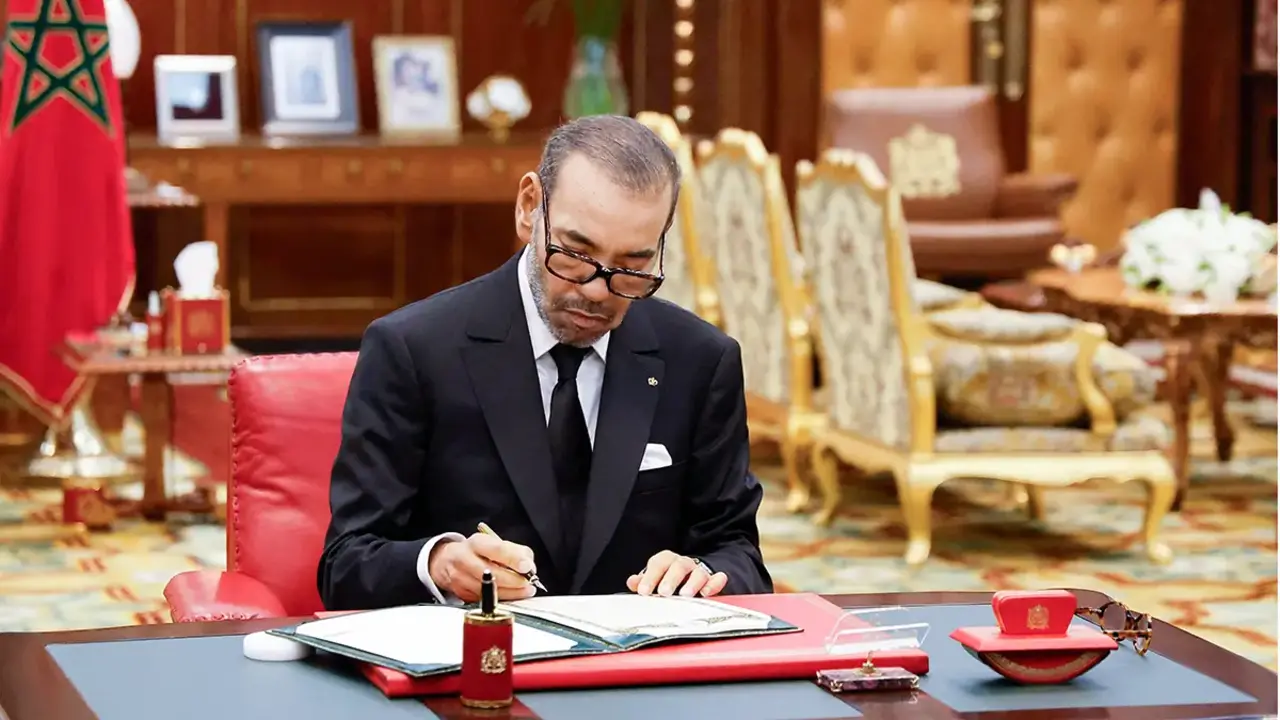Casablanca, Madrid or Barcelona? The stadiums that could host the 2030 World Cup final
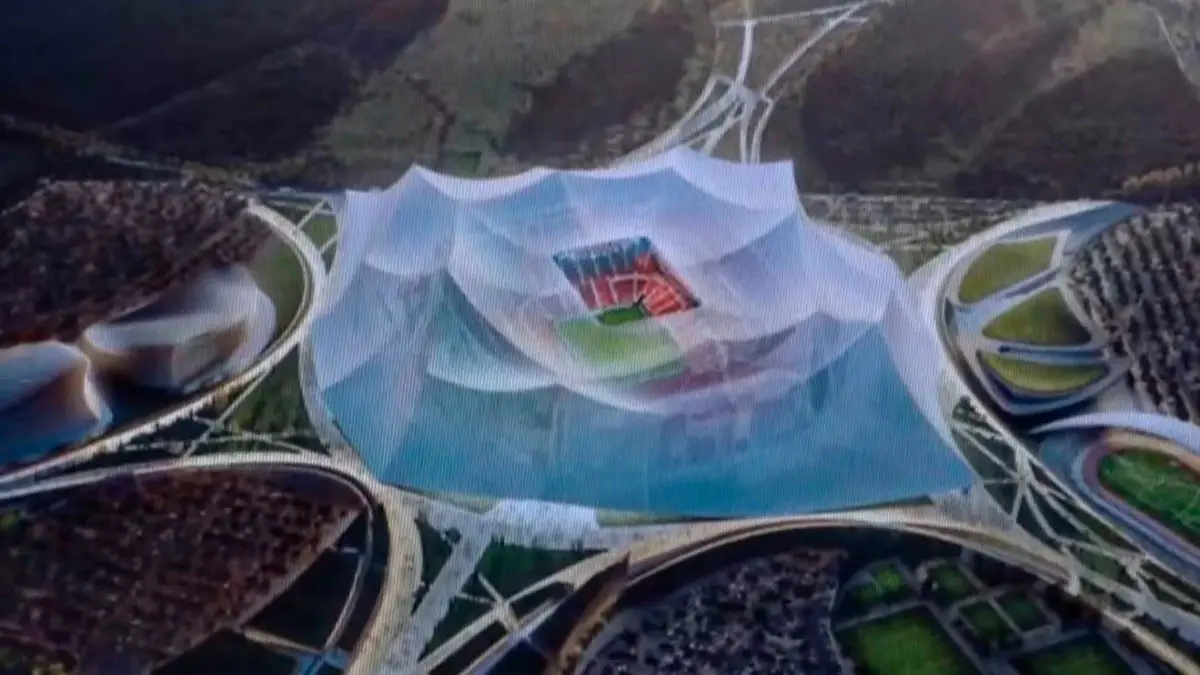
The deadlines are over. As reported by the Spanish sports media AS, FIFA has published the dossier where all the details of the venues that will host at least one match during the 2030 World Cup to be held in Morocco, Spain and Portugal are set out.
As announced in the same newspaper, Spain will be the country with the most World Cup venues. Of the 20 venues, 11 will be in Spain, 6 in Morocco and 3 in Portugal. As for the Spanish stadiums, those proposed by the RFEF last June will be maintained.
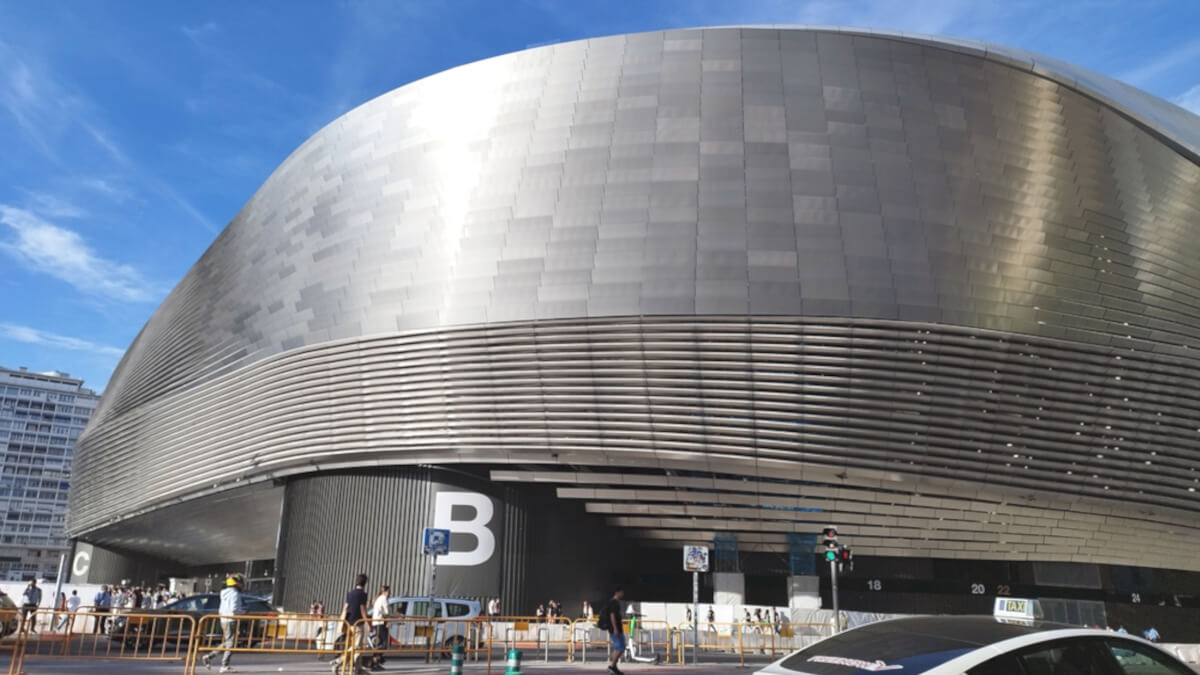
The list of Spanish stadiums that could host World Cup 2030 matches includes La Rosaleda (Málaga), San Mamés (Bilbao), Metropolitano (Madrid), Riazor (A Coruña), Camp Nou (Barcelona), La Cartuja (Seville), Nueva Romareda (Zaragoza), Santiago Bernabéu (Madrid), RCDE Stadium (Barcelona, Cornellá-El Prat), Gran Canaria (Las Palmas) and Anoeta (Donostia-San Sebastián).
The Moroccan stadiums will be Fez, Agadir, Marrakech, Rabat, Tangier, and Casablanca with the ‘Hassan II Grand’ stadium, the latter one of the top candidates to host the finals matches, including the most important match: the World Cup final. On the Portuguese side, the venues will be in the coastal cities of Porto and Lisbon.
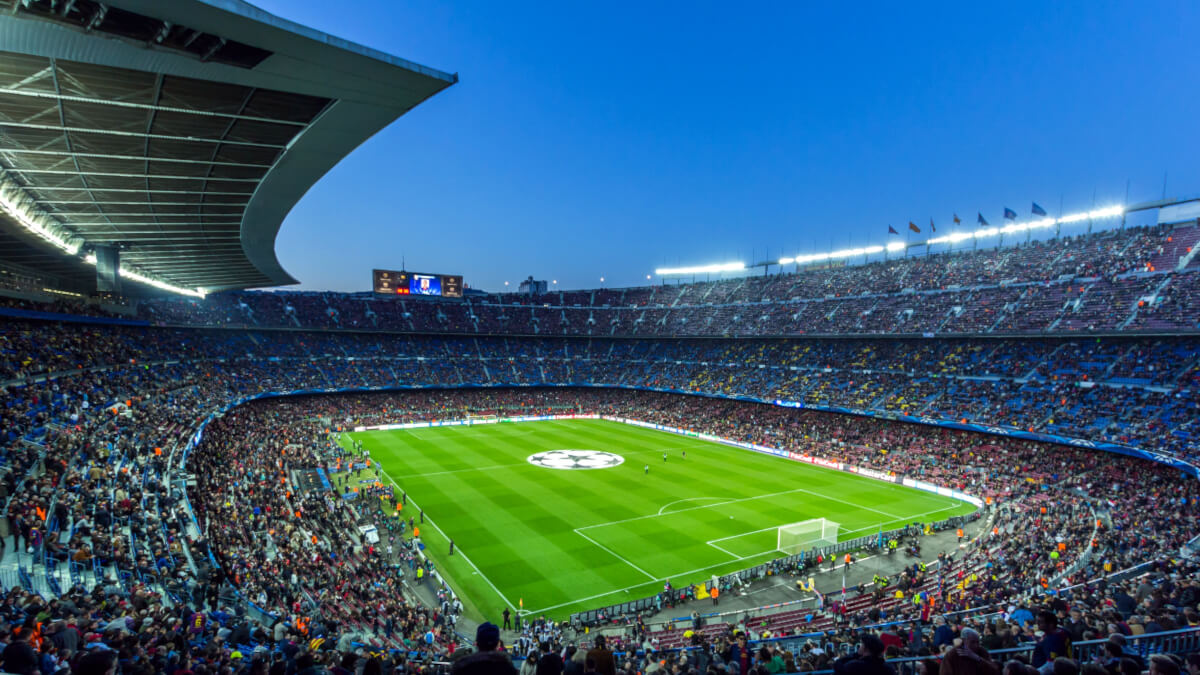
To this list of 20 stadiums should be added, as a result of the agreement with the South American Football Confederation (CONMEBOL), the stadiums in the cities of Montevideo (Uruguay), Buenos Aires (Argentina) and Asunción (Paraguay) where, to celebrate the centenary of the first World Cup held there in Uruguay in 1930, the opening matches of the most important football tournament in the world will be played.
The final list of stadiums is as follows:
- Hassan II Grand (Casablanca, Morocco) - 115,000 spectators.
- Camp Nou (Barcelona, Spain) - 99,354
- Santiago Bernabeu (Madrid, Spain) - 81,044
- Tangier Stadium (Tangier, Morocco) - 75,600
- Monumental Stadium of Argentina (Buenos Aires, Argentina) - 74,624.
- Prince Moulay Abdullah Complex (Rabat, Morocco) - 68,700
- Metropolitano Stadium (Madrid, Spain) - 68,456
- Estadio Nacional de Montevideo (Montevideo, Uruguay) - 62,000
- La Cartuja (Seville, Spain) - 57,619
- Fez Stadium (Fez, Morocco) - 55,800
- San Mamés (Bilbao, Spain) - 53,289
- Agadir Stadium (Agadir, Morocco) - 46,000
- Marrakech Stadium (Marrakech, Morocco) - 45,860
- Asunción Stadium (Asunción, Paraguay) - 42,000
- Anoeta Stadium (Donostia-San Sebastian, Spain) - 39,500
- Riazor (A Coruña, Spain) - 34,600
- Nueva Romareda (Zaragoza, Spain) - 34,596
- Gran Canaria (Las Palmas, Spain) - 32,400
- La Rosaleda (Málaga, Spain) - 30,044
- RCDE Stadium (Barcelona, Cornellá-El Prat, Spain) - 17,700
Casablanca, the perfect stadium for a World Cup final
The arrival of the World Cup in Morocco is a milestone and a reward for the passion and dedication of Moroccan football, which has achieved great success in recent years. Morocco has submitted its bid to host the 2030 World Cup, in partnership with Portugal and Spain, and Casablanca is the stadium that stands out above the rest.
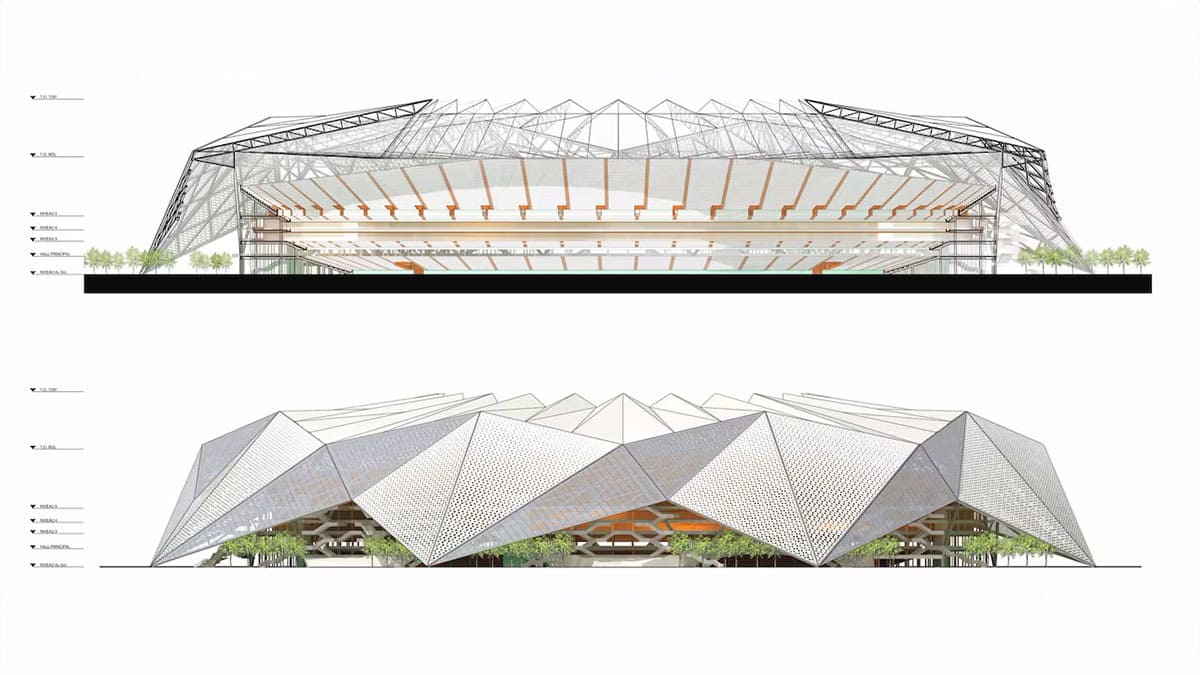
At a ceremony at the FIFA offices in Paris on Monday, Morocco showed its enthusiasm for hosting football's biggest event. Casablanca is building a stadium that has all the amenities to be the best stadium and the best candidate to host the World Cup final. The ‘Hassan II Grand’ stadium in Casablanca is an icon of Moroccan football and will have a seating capacity of 115,000 when the project is built, making it an ideal venue for the most important match of the tournament.
Morocco is committed to preparing the stadiums for the event, and construction and expansion work has begun on several stadiums. In addition, Morocco has designated several venues to host the events that will accompany the 2030 World Cup.

The Grand Theatre in Rabat will host the draw for the preliminary round and the final phase, while the Conference Palace in Benguerir will host workshops and seminars for the participating teams, and the Grand Theatre in Casablanca will host the Fédération Internationale de Football Association conference.
Morocco, the home of football
Moroccan football has experienced a resurgence in recent years, with several notable milestones. In 2018, Morocco qualified for the 2018 World Cup for the first time in 20 years, which was a major achievement for the national team. In 2019, Morocco won the Arab Cup of Nations Football title, and, in 2020, qualified for the 2021 Africa Cup of Nations Football. In the same year, Morocco won the Arab Nations Cup title for the second time in its history.
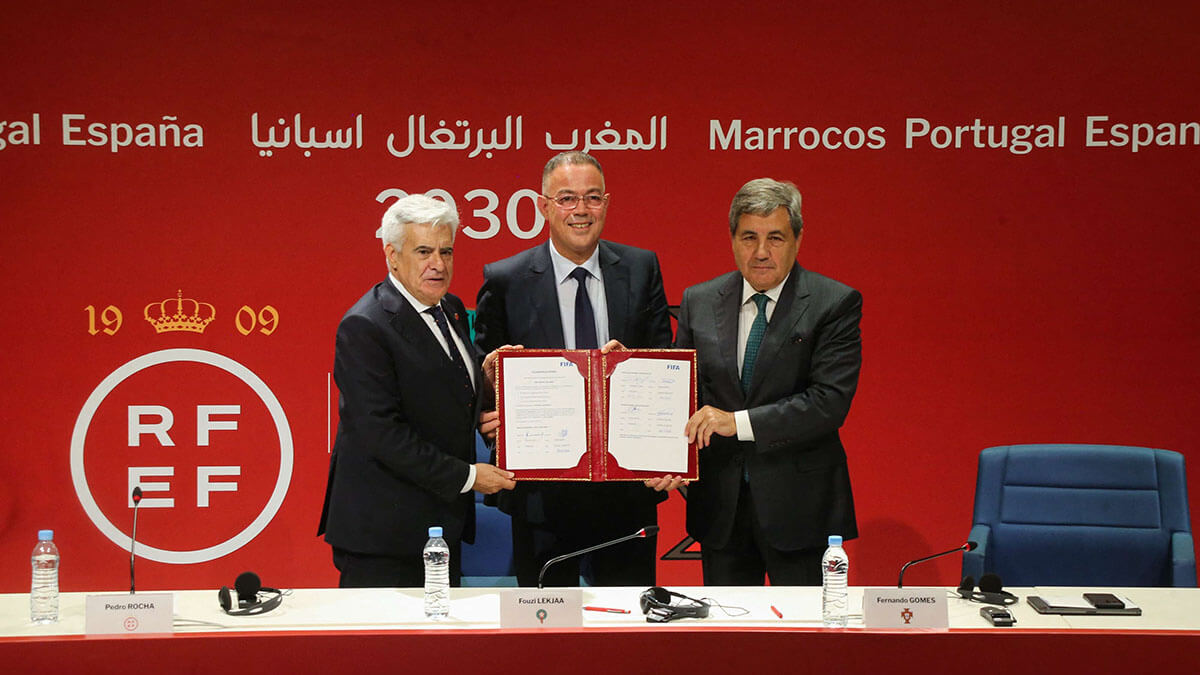
In 2022, it not only qualified for the 2022 World Cup, but also achieved the best result for an African and Arab nation in the history of the World Cups by reaching the penultimate step, the semi-finals. In addition, Moroccan women's football has also experienced significant growth, with the Moroccan women's national team qualifying for the 2023 Women's World Cup.
Successes do not happen by chance, they are the result of hard work and perseverance. Morocco's efforts to promote not only sport, but also its values and traditions, have led to major international competitions being held in the country.
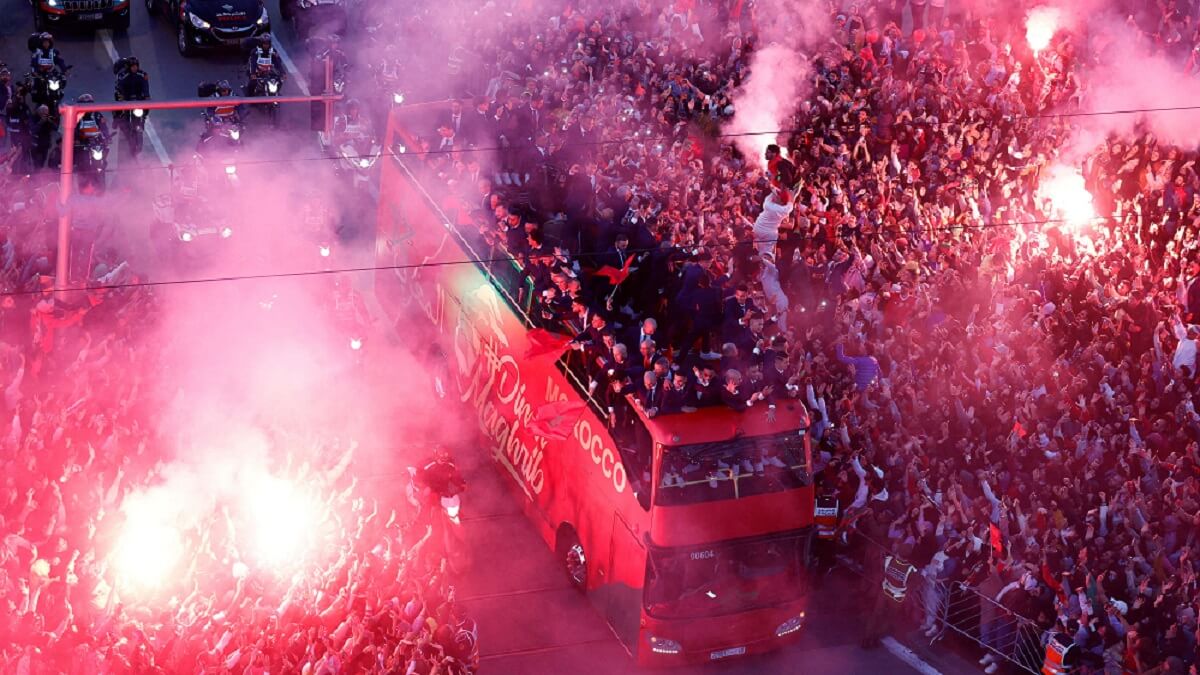
As a result, Morocco has hosted and will host several international football competitions between 2017 and 2030, including the CAF Women's African Cup of Nations 2018 (WAFCON 2018) from 17 November to 1 December 2018, the FIFA U-20 Football World Cup 2019 from 20 May to 9 June 2019, the CAF Africa Cup of Nations 2022 from 13 January to 6 February 2022, the CAF Women's Africa Cup of Nations 2024 (WAFCON 2024) from 5 to 26 July 2024, the CAF Africa Cup of Nations 2025 from 21 December 2025 to 18 January 2026, the FIFA U-20 World Cup 2025 from 16 May to 9 June 2025, the CAF Women's Africa Cup of Nations 2026 (WAFCON 2026) from 3 to 24 July 2026 and, finally, the FIFA World Cup 2030 from 8 June to 8 July 2030.




